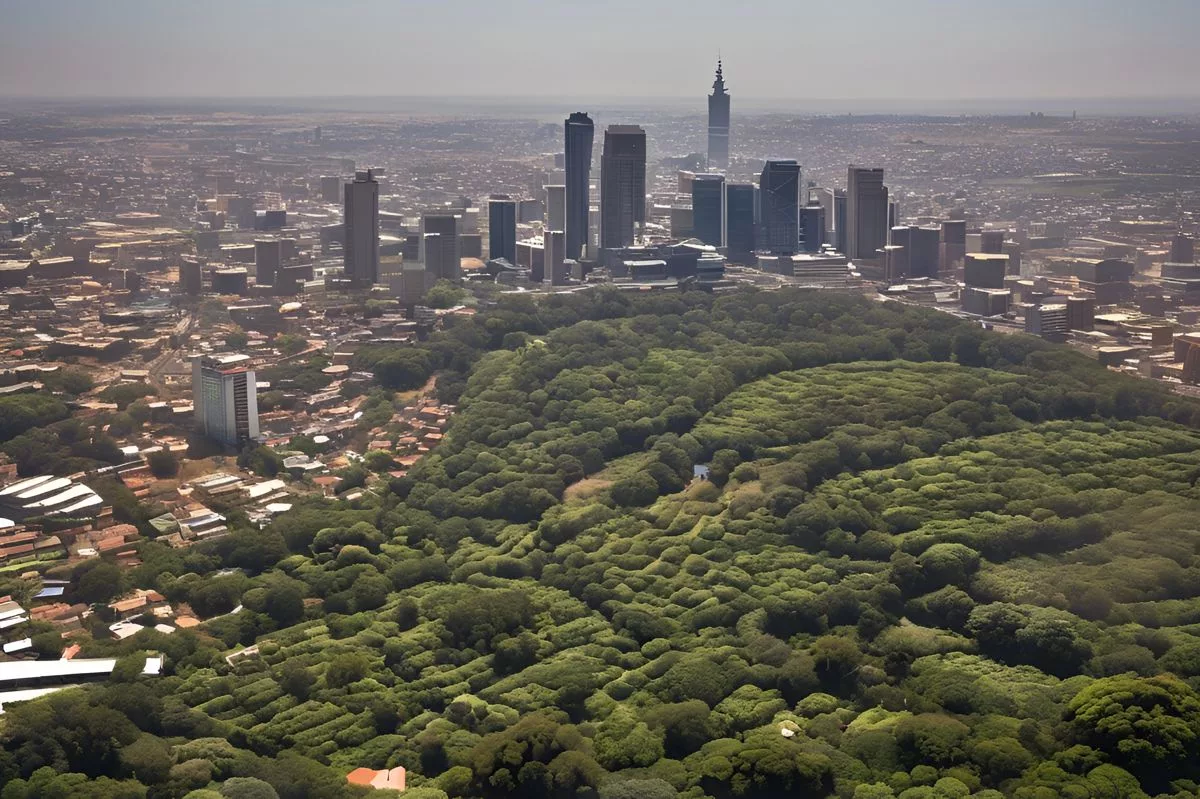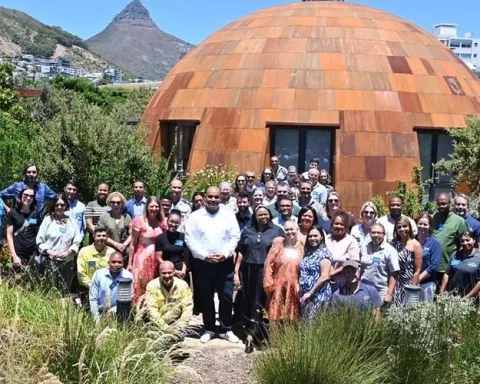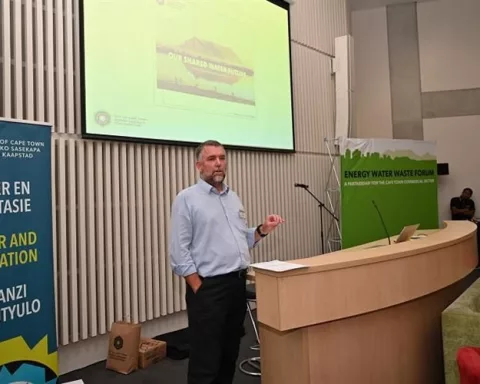Johannesburg is a lively city where old meets new, creating a unique and colorful atmosphere. Known for its massive man-made forest filled with over 10 million trees, it offers green spaces that bring joy and calm to city life. With a skyline dotted with tall buildings, including Africa’s tallest, Johannesburg showcases its ambition and creativity, shaped by its rich gold mining history. The city buzzes with vibrant culture, delicious food, and a strong sports spirit, making it a fascinating place to explore and enjoy. As Johannesburg continues to grow, it remains a shining example of resilience and innovation in a bustling urban landscape.
What makes Johannesburg a unique city?
Johannesburg is a unique city characterized by its blend of history and modernity. It features the world’s largest man-made forest, a rich mining heritage, an iconic skyline with Africa’s tallest buildings, vibrant cultural scenes, and evolving infrastructure. This tapestry makes it a dynamic metropolis.
A Green Oasis Rising from the Dust
Johannesburg pulses with energy and stands as a testament to human creativity and resilience. Once a barren landscape, it has transformed into a lush, green metropolis, earning the title of the world’s largest man-made forest. With more than 10 million trees, Johannesburg offers an urban refuge teeming with green spaces.
These trees, planted over the years, provide essential ecological benefits, such as reducing air pollution and offering serene spots for relaxation and recreation. The city’s green areas have become cherished retreats for residents, enhancing their quality of life. The forested expanse not only makes Johannesburg visually appealing but also plays a vital role in environmental conservation.
The city’s commitment to maintaining this green belt is evident in its numerous parks and botanical gardens. These green lungs contribute to the city’s air quality and offer a tranquil escape from the hustle and bustle. Places like the Johannesburg Botanical Garden and Emmarentia Dam are popular among locals and tourists alike, providing a perfect blend of nature and urban life.
Gold Rush: The Birth of Egoli
Known as Egoli, or the “place of gold,” Johannesburg’s rich history is deeply rooted in the discovery of gold in 1886. This event triggered a massive gold rush, rapidly transforming the city from a modest mining settlement into a bustling urban hub. The gold rush’s impact is still evident today, with the mining industry remaining a cornerstone of the local economy.
The rapid influx of fortune-seekers during the gold rush led to explosive growth and development. Infrastructure expanded, businesses flourished, and the city’s population boomed. This period marked the beginning of Johannesburg’s journey to becoming a global economic powerhouse. The mining heritage is still visible in the city’s identity and economy, contributing significantly to its ongoing prosperity.
The legacy of this era is preserved in various heritage sites and museums, such as the Gold Reef City, which offers insights into the city’s mining past. Visitors can explore old mine shafts and learn about the lives of early miners, providing a tangible connection to Johannesburg’s storied history. The city’s moniker, Egoli, serves as a constant reminder of its golden origins and enduring spirit.
Skyline of Ambition and Innovation
Johannesburg’s skyline is a symbol of its growth and modernization. Boasting the highest concentration of skyscrapers in Africa, the city’s architecture is a testament to its economic strength and innovative spirit. Landmark buildings like the Carlton Centre, standing at 223 meters, and the uniquely designed Ponte City Apartments, dominate the urban landscape.
These towering structures not only define the city’s skyline but also reflect its aspirations and achievements. The Carlton Centre, known as Africa’s tallest building, is an iconic representation of Johannesburg’s ambition. Similarly, the cylindrical Ponte City Apartments have become architectural marvels, showcasing the city’s flair for modern design.
Johannesburg’s architectural prowess extends beyond its skyscrapers. The city is home to numerous other notable buildings and structures that contribute to its unique character. From historic landmarks to contemporary designs, the city’s architectural landscape is a blend of the old and the new, mirroring its dynamic and multifaceted identity.
Deep Roots: Mining Marvels
Beneath Johannesburg’s busy streets lies an intricate subterranean world. The city houses some of the world’s deepest mines, where miners extract precious metals from remarkable depths. The Mponeng Gold Mine, reaching about 4 kilometers below the surface, holds the title of the world’s deepest mine, illustrating incredible human determination and engineering.
This underground labyrinth is a marvel of modern engineering and showcases the city’s historical connection to mining. The extraordinary depth of these mines is a testament to the lengths humanity will go to extract valuable resources. The continuous operation of these mines also underscores Johannesburg’s enduring role in the global mining industry.
The city’s mining sector remains a vital part of its economy, providing jobs and driving technological advancements. Innovations developed in the mining industry often find applications in other sectors, further fueling Johannesburg’s economic growth. The story of these deep mines is intertwined with the city’s broader narrative of resilience and progress.
A Cultural Melting Pot
Johannesburg offers a rich and diverse experience, from its bustling streets filled with markets and vendors to its serene parks and tree-lined avenues. The city’s cultural scene is vibrant, with numerous museums, galleries, and theaters celebrating its artistic and historical heritage. Institutions like the Apartheid Museum serve as poignant reminders of the city’s tumultuous past and the resilience of its people.
The city’s cultural vibrancy extends to its various festivals and events, which draw participants from all over the world. Whether it’s the Johannesburg Carnival or the Arts Alive Festival, these events highlight the city’s diverse artistic expressions. The vibrant street art scene, with murals adorning many buildings, also adds to Johannesburg’s dynamic cultural tapestry.
Johannesburg’s culinary landscape reflects its multicultural population, offering an array of flavors and cuisines. From traditional African dishes to international fare, the city’s restaurants cater to diverse tastes. The lively Maboneng Precinct, known for its creativity and innovation, is a hotspot for food lovers and art enthusiasts alike, making it a must-visit destination.
Sports and Education: Pillars of Progress
Sports are a major source of pride in Johannesburg, which has hosted numerous international events, including the FIFA World Cup in 2010. Iconic stadiums like Soccer City and Ellis Park have been the backdrop for countless memorable moments, further cementing the city’s reputation as a sports hub.
Johannesburg’s sports culture is not limited to soccer. The city is also passionate about rugby, cricket, and other sports, with state-of-the-art facilities supporting various athletic pursuits. These venues not only host local and international competitions but also serve as community centers where residents gather to celebrate their shared love of sports.
Education and innovation are vital to Johannesburg’s identity. The city is home to several prestigious universities and research institutions, attracting scholars from around the globe. These institutions play a crucial role in fostering a culture of learning and driving the city’s growth and development. The presence of top-tier educational facilities underscores Johannesburg’s commitment to knowledge and progress.
Evolving Infrastructure: A Transport Hub
Johannesburg’s transportation infrastructure is continuously evolving to meet the needs of its growing population. The Gautrain, a state-of-the-art rapid transit system, connects the city to neighboring regions, offering a fast and efficient mode of travel. This modern rail network exemplifies Johannesburg’s commitment to improving its transportation systems.
The city’s extensive road network and public transportation options ensure seamless navigation for both residents and visitors. Comprehensive bus services, taxis, and ride-sharing options make it easier to traverse the urban landscape. Ongoing infrastructure projects aim to further enhance connectivity and reduce congestion, contributing to Johannesburg’s development as a modern metropolis.
In addition to ground transportation, Johannesburg is also a major air travel hub. The O.R. Tambo International Airport, one of the busiest in Africa, connects the city to global destinations. This extensive transport network plays a crucial role in supporting Johannesburg’s status as a global economic and cultural center.
A Unique Urban Tapestry
In conclusion, Johannesburg is a city of contrasts where history and modernity coexist in harmony. Its journey from a dusty mining outpost to a global powerhouse is a testament to the ingenuity and resilience of its people. As Johannesburg continues to grow and evolve, it remains a vibrant and dynamic metropolis, offering a unique blend of history, culture, and modernity.
From its green spaces and iconic skyline to its rich cultural scene and deep-rooted mining heritage, Johannesburg presents a multifaceted and captivating urban tapestry. The city’s ongoing development and innovation promise an exciting future, ensuring that it remains a beacon of progress and possibility on the global stage.
FAQ about Johannesburg
What makes Johannesburg a unique city?
Johannesburg is unique due to its blend of history and modernity. It features the world’s largest man-made forest, a rich gold mining heritage, an iconic skyline with Africa’s tallest buildings, vibrant culture, and ongoing infrastructural growth, making it a dynamic metropolis.
How does Johannesburg maintain its green spaces?
Johannesburg is home to over 10 million trees, which form the world’s largest man-made forest. The city’s commitment to maintaining these green spaces is evident in its numerous parks and botanical gardens, such as the Johannesburg Botanical Garden and Emmarentia Dam, which provide ecological benefits and serene retreats for residents and visitors.
What historical significance does gold mining hold in Johannesburg?
Known as Egoli, or the “place of gold,” Johannesburg was transformed into a bustling urban hub following the gold rush in 1886. This rich history continues to shape the local economy and identity, with mining heritage preserved in various museums and attractions like Gold Reef City.
What can visitors expect from Johannesburg’s skyline?
Johannesburg boasts the highest concentration of skyscrapers in Africa, including iconic structures like the Carlton Centre and Ponte City Apartments. This skyline is a testament to the city’s economic strength and innovative spirit, showcasing a blend of historic and contemporary architectural designs.
How does Johannesburg showcase its cultural diversity?
Johannesburg is a cultural melting pot, offering vibrant experiences through its museums, galleries, theaters, and festivals. The city’s culinary landscape reflects its multicultural population, with diverse flavors from traditional African dishes to international cuisines, particularly evident in areas like the Maboneng Precinct.
What transportation options are available in Johannesburg?
Johannesburg features a continuously evolving transportation infrastructure, including the Gautrain rapid transit system, extensive road networks, and public transportation options like buses and taxis. O.R. Tambo International Airport serves as a major air travel hub, connecting the city to global destinations.












